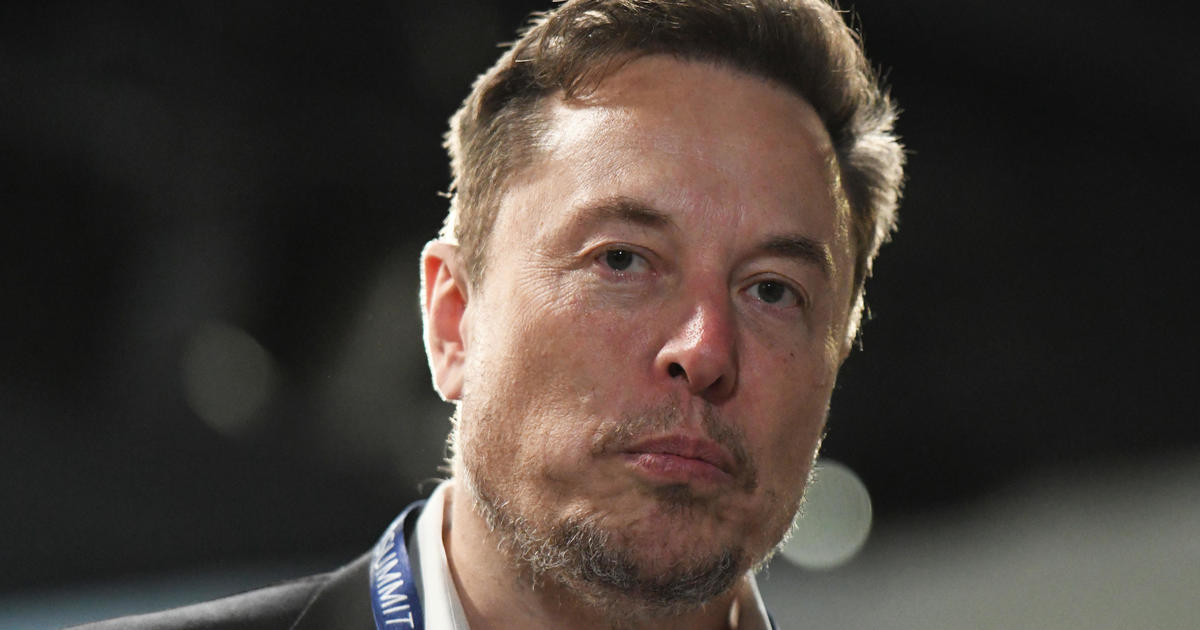What is a "billionaires tax," and how would it work?
Democrats are considering a new tax on billionaires that would help fund their proposed $3.2 trillion social spending package. Although some critics of the plan say it opens the door to tax hikes on a broader swath of Americans, the proposal would only impact taxpayers with more than $1 billion in assets, or those with incomes of more than $100 million for three consecutive years.
In all, the tax would apply to roughly 700 of the wealthiest people in the U.S.
Senate Finance Committee Chairman Ron Wyden of Oregon unveiled his billionaires income tax early Wednesday. "We expect that these billionaires, and there's something like less than 800, who made close to $2 trillion during the pandemic, would pay a tax, their fair share, every year just like nurses and firefighters," he said Tuesday.
A key change under the plan is that tradable assets, such as stocks, would be valued annually. Billionaires would be taxed on their gains — whether they have sold the asset or not. Under current law, a gain is only taxed if it is "realized" when its owner sells the asset and books the profit. Unrealized gains — stocks or other investments that rise in value and that the investor holds onto — aren't currently taxed.
In other words, the Democrats' tax plan raises questions about what qualifies as taxable income. In their view, the unrealized gains that billionaires have long enjoyed should be taxed as income since the value of those assets, even if unrealized, allows them to tap loans and financial instruments that provide them with income.
"When Jeff Bezos' stock holdings grow by $10 billion & he has an $80,000 salary, he should be taxed as a person with $10 billion in income, not like a middle-class wage-earner," wrote Chuck Marr, tax expert with the Center on Budget and Policy Priorities, in a Twitter thread about the proposal. "A billionaire's tax makes sense – it's just basic Econ 101 & Accounting 101."
Why do Democrats want to tax billionaires?
Democratic lawmakers are framing the issue as one of simple fairness as they push their spending package. In their view, taxing the ultra-rich is about asking billionaires "to pay a fair share," according to Senate Finance Committee Chair Ron Wyden in a statement.
This debate is taking place against a backdrop of huge wealth gains for billionaires and other wealthy Americans during the COVID-19 pandemic. The collective net worth of America's billionaires has surged by $2 trillion during the health crisis thanks to a rise in stock prices and other assets, according to Americans for Tax Fairness, a left-leaning group.
By comparison, the assets of the bottom 20% of households has grown by just 1% during the pandemic, according to a new analysis from Oxford Economics.
What is this "unrealized gains" issue really about?
The question boils down to whether wealth that has to be claimed should be taxed like income — an issue that, not surprisingly, is raising hackles among critics of the Democrats' proposal. That's because the U.S. tax system is based on the income tax, or taxing earnings from work.
The IRS also taxes profits from capital gains, but at a lower rate than income, which is why some wealthy people have a lower tax rate than middle-class families. Earlier this year, ProPublica reported that America's richest citizens had a "true tax rate" of almost zero.
Unrealized gains versus income might strike some as an apples-to-oranges comparison: After all, people with 401(k) plans who see those accounts grow in value won't pay taxes on that increase in wealth until they cash out. Similarly, home values go up, yet people don't pay taxes on annual home value gains — that tax isn't paid until the homeowner sells the house.
How would a billionaires tax work?
Basically, every year the U.S. would levy a tax on the unrealized gains of assets held by billionaires. For instance, if a billionaire's $1 million investment in a particular stock doubled to $2 million, the IRS would tax that $1 million gain. While a billionaires tax rate has not been set, it is expected to be no lower than the 20% rate imposed on capital gains.
When selling non-tradable assets, such as real estate, billionaires would pay their usual taxes as well as a "deferred recapture amount" — similar to the amount of interest on the taxes the individual deferred during the time they held asset.
There are several other provisions. The first time a billionaire is subject to the tax, they can opt to pay the tax over 5 years. Those subject to the tax may also treat up to $1 billion of tradable stock from one corporation as a non-tradable asset to ensure it does not affect the ability of someone to maintain controlling interest of a successful company they founded.
The tax would also include rules to prevent billionaires from avoiding payment by using tax-minimizing strategies such as passthrough entities, gifts, estates and trusts.
Is this the same as a wealth tax?
No, because this tax would be levied on annual gains, instead of taxing a person's entire wealth. For instance, if a billionaire began the year with $10 billion in wealth and ended the year with $11 billion, the tax would impact the $1 billion in gains. The rest of the $10 billion in wealth wouldn't be subject to this tax.
What is the argument for taxing unrealized gains?
Some progressives argue that the current tax system doesn't make sense when applied to billionaires. Amazon.com founder Jeff Bezos is worth $193 billion, making him the world's second-richest man, but much of his wealth goes untaxed because it's mostly in the form of Amazon stock. So if his assets appreciate by $10 billion a year, it's not taxed.
"If Mr. Bezos does not sell any of his Amazon shares in a given year, the income tax ignores the $10 billion gain, and effectively he is taxed like a middle-class person making $80,000 a year," the CBPP's Marr said, citing Bezos' most recent Amazon salary.
But Marr argues this doesn't make sense since such increases in untaxed wealth can help the rich boost their income — for instance, they can take out loans, backed by their unrealized wealth, to fund their lifestyles.
"Why do wealthy people take out these loans? A big reason is to avoid paying taxes they would have to pay if they sold some of their assets," Marr noted. "With this proposal, policymakers, in effect, are acknowledging that this is a glaring loophole in the income tax that needs to be closed."
How much federal revenue would the tax raise?
There isn't yet an estimate from the nonpartisan Joint Committee on Taxation, but House Speaker Nancy Pelosi said the billionair's tax could raise $200 billion to $250 billion of revenue over a decade.
What do billionaires say?
At least one billionaire is speaking out against it. On Twitter, Tesla founder Elon Musk — the world's richest person, with an estimated wealth of $288 billion — warned that the tax could be expanded to hit additional taxpayers.
"Eventually, they run out of other people's money and then they come for you," Musk tweeted on Monday.
Some lawmakers are also expressing concern, with Senate Republican leader Mitch McConnell calling it a "harebrained scheme" and warning of revenue drying up during downturns.
— With reporting from the Associated Press.



